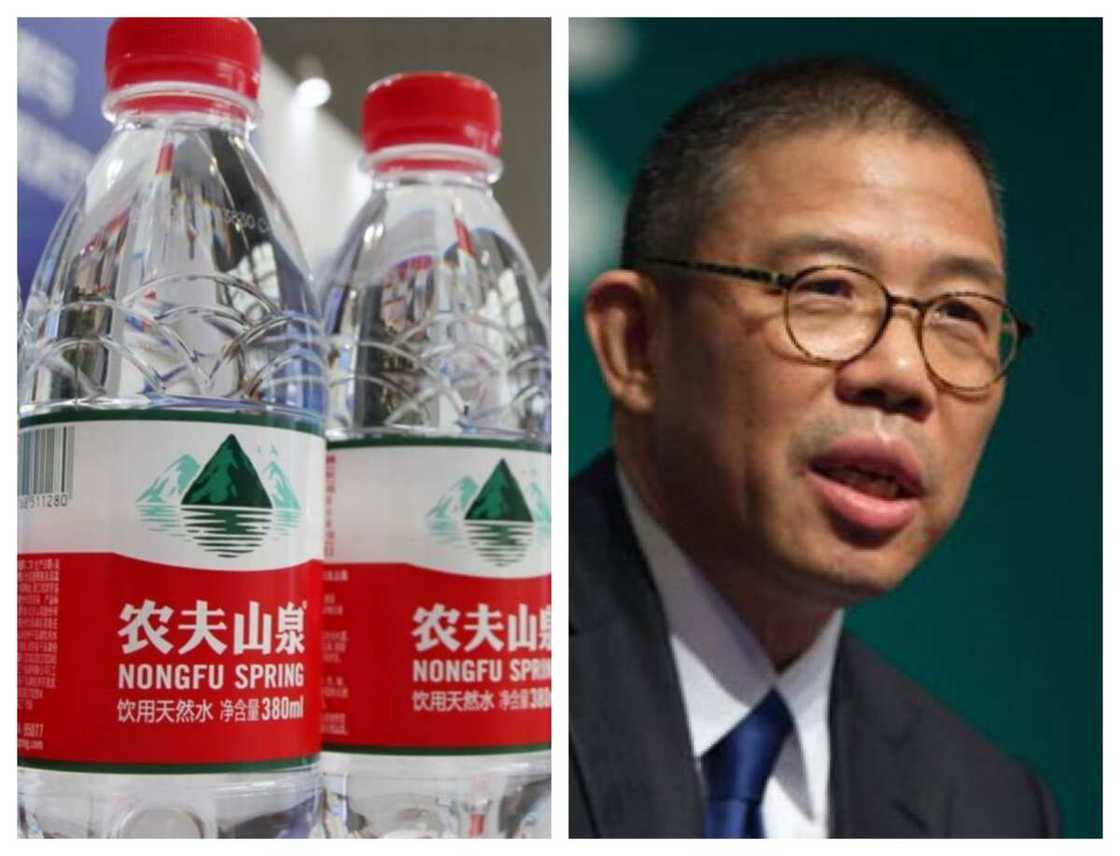Bottled Water King: Meet School Dropout Who Failed Exam Twice, Now Worth N32.1trn Selling Bottled Water
- Zhong Shanshan who started selling only bottled water in the 60s has now become the richest man in China, displacing Jack Ma, owner of Alibaba
- His business flourished during the COVID-19 pandemic when he started making and selling test kits which increased his networth
- He dropped out of school at the age of 12 and became a bricklayer, carpenter and journalist before landing a fortune making bottled water
PAY ATTENTION: Сheck out news that is picked exactly for YOU ➡️ find the “Recommended for you” block on the home page and enjoy!
When fortune smiles on you, it does not matter what job or business you do, you will find your place among the pantheon of the rich and wealthy.
Bottled water empire
They call him the bottled water king. Zhong Shanshan is now the richest man in China worth about N32.1 trillion ($77.5 billion) displacing Alibaba founder, Jack Ma who is currently worth N16.06 trillion ($38.7) billion after state interference in his business made him lose fortunes.

Source: UGC
Bloomberg’s Billionaires Index puts Shanshan’s fortune at over N40 trillion.
PAY ATTENTION: Subscribe to Digital Talk newsletter to receive must-know business stories and succeed BIG!
Shanshan is the owner of Nongfu Spring mineral water and Wantai Biological Pharmacy Enterprise in Shanghai.
COVID-19 benefits
Shanshan made a huge leap as the years progressed. His fortune saw exponential growth during the COVID-19 period.
The the bottled water merchant started making and selling COVID-19 tests kits at the peak of the pandemic when demand for the kits was really high.
Shanshan's shares in Nongfu Spring and Wantai Biologica Pharmacy were listed on the stock market
His main source of income
The business mogul's bottled water business is mainly the source of the billionaire’s fortune, coming from his 84 per cent stake. His company which is listed on Hong Kong Stock Exchange went public on September 20, 2020. His investment platforms include Yangshengtang and Hangzhou Youfu, according to the company’s annual report.
The valuation for Nongfu Spring was revised when it became traded publicly on September 8, 2020. It increased in networth of N13,2 trillion.
Shanshan is also a hepatitis test kit maker in China, Beijing which Wantai Pharmacy Enterprise, which is also owned by Zhong makes. In the 2021 company’s semi-annual report, it was revealed that he owns the stake both directly and through Yangshentang.
Indian Times reports that in the 1980s, Zhong became a journalist. He later set up his bottled water business in an island province in southern China, Hainan after a five-year stint in journalism.
School dropout now in the same league with Zuckerberg and Buffet
Zhong dropped out of school at the age of 12 and became a bricklayer, a carpenter in the 60s and 70s during China’sg Cultural Revolution.k’s Mark Zuckerberg and investor, Waren Buffet.
Shanshan failed the college entrance examination (Nigeria’s equivalent of Joint Admissions and Matriculation Board (JAMB) twice before enrolling in the Open University of China.
Zhong said:
I don't have the habit of flattery in my personality. I don't like to deal with people and have to drink.
Legit.ng had reported that in 2008 when Funke Opeke first proposed building an undersea 7,000km-long fiber optic cable network from Portugal to Nigeria, it was an idea that got people laughing, others see it as crazy.
Opeke was besieged with more questions about what if the cable was stolen, the risks, and funding for the project.
She recounted the experience in an interview of how difficult it was to raise the start-up capital and the initial skepticism.
Source: Legit.ng


